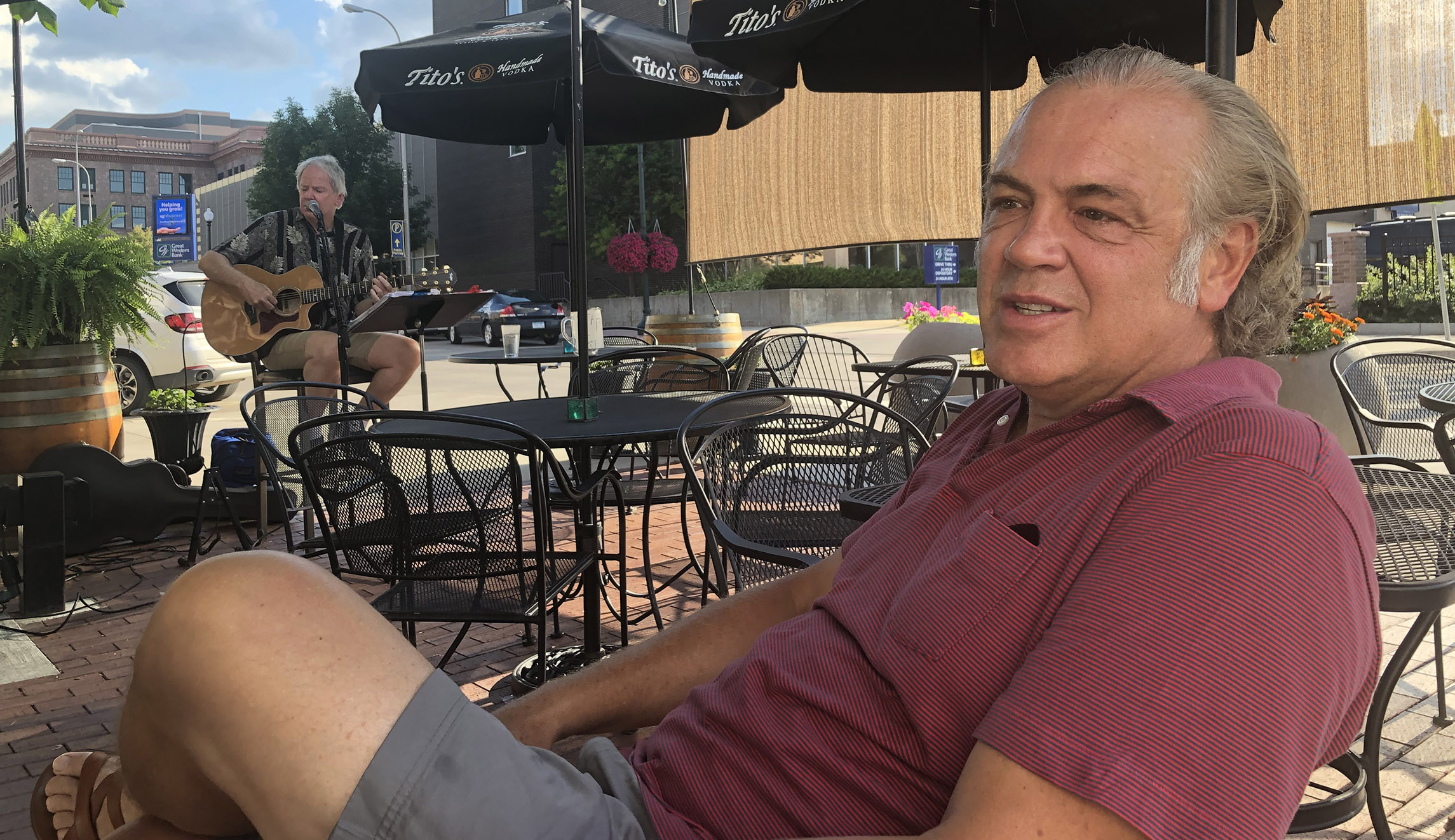SIOUX FALLS, South Dakota — Science will warn you against believing that things happen for a reason. But things that happen make it hard to not believe there’s a reason.
I wasn’t looking for a story first thing when I got into Sioux Falls. I simply hadn’t eaten in 271 miles of state highways, county roads, and U.S. routes when I found Parker’s Bistro on Phillips Street. But when I sat down, the story found me.
Rick Weiland, a prominent South Dakota Democrat who has run for both Congress and U.S. Senate in the state, who has served as senior staff to the former Democratic Senate Majority Leader Tom Daschle, and who served in the Clinton administration, was sitting across from me.
It’s not that often a former U.S. Senate nominee is sitting across from you by happenstance. In particular, if you travel the country on back roads, it’s also not that often they share a beer and their views of the world with you without the filter of political urgency.
Weiland is the ultimate prairie populist. His views come from experience, rather than from focus groups or consultants. His authenticity was apparent in his iconic campaign video in 2014 when he personally sang his platform to the tune of Roger Miller’s King of the Road:
My vote is not for sale or rent
I just won’t listen to the one percent
I’m not campaigning in corporate jets
I’m meeting voters in luncheonettes
The quiet streets and scarce foot traffic don’t reflect the state of economic and population explosion in this city. It’s the largest in the state, and it’s growing fast. Census Bureau estimates show they are one of less than 100 metro areas in the U.S. that saw their populations grow by at least 10 percentage points in the last 10 years.
“The economy here is good, real good,” said Weiland, who just returned from a folk festival at Newton Hills State Park where he camped with his granddaughter.
He pointed to economic opportunity made available by several sectors rather than a reliance on one. “So healthcare is the main one, but there is also banking, which is kind of big here as well, and light manufacturing,” he said.
Despite running for a Senate seat held by then-retiring Democratic Sen. Tim Johnson in 2014, Weiland knew he was running in a conservative state. He faced former governor Republican Mike Rounds and independent Larry Pressler.
As any populist ought to be, Weiland was ahead of his time in 2014. He took on his party’s establishment because he wasn’t then-Senate Majority Leader Harry Reid’s choice to run in that race: Stephanie Herseth Sandlin was. Weiland, in turn, let Reid know he wasn’t Weiland’s choice for majority leader if he won the seat.
In the end, Herseth Sandlin decided not to run, and Weiland won the primary.
In the general election, the press got excited. Many D.C.-based journalists flew here to cover the race, reporting it was going be a close one. In the end, it wasn’t, in part because the belief took hold that Weiland was more liberal than populist. “I don’t think I was,” he says. “I think I got tagged being liberal because I didn’t support the Keystone Pipeline.”
Rounds won the seat easily, but that doesn’t mean Weiland lacked an impact. He spent 2014 also campaigning for a higher minimum wage, and that ballot measure won 55% of voters support on a ballot measure.
And in 2016 as Donald Trump was winning the state by a whopping 30 percentage points, another ballot measure, this one decreasing that same minimum wage for workers under 18 years old, failed.

Weiland says he will not run for office again and is cured of the bug. “I think so, I think so,” he says.
As a local musician crooned folk sounds and the patio at the bistro started to fill up, Weiland decided to do a little bragging of his hometown he said gave him and his five children all a sense of place. “So, Cher was in town about two or three months ago, right? Out at the new event center. Someone from her staff called down here to get a meal for her. She ordered the Buddha Bowl, and the staff was so pumped, of course my wife and my two girls were on their way out to the concert when the call came in.”
You definitely get the idea Weiland, whose 91-year-old mother lives not far from here, not only fits in better here than in Washington where he lived for a handful of years, but also that he can make that difference without being elected.
